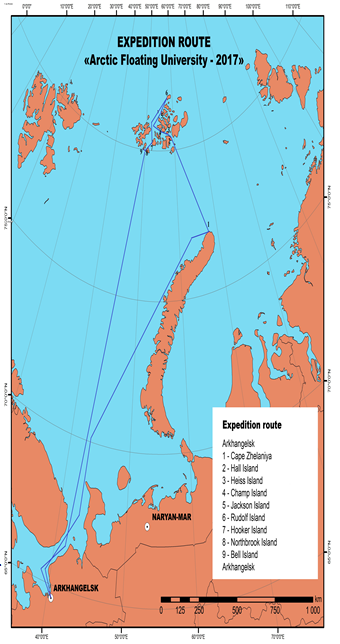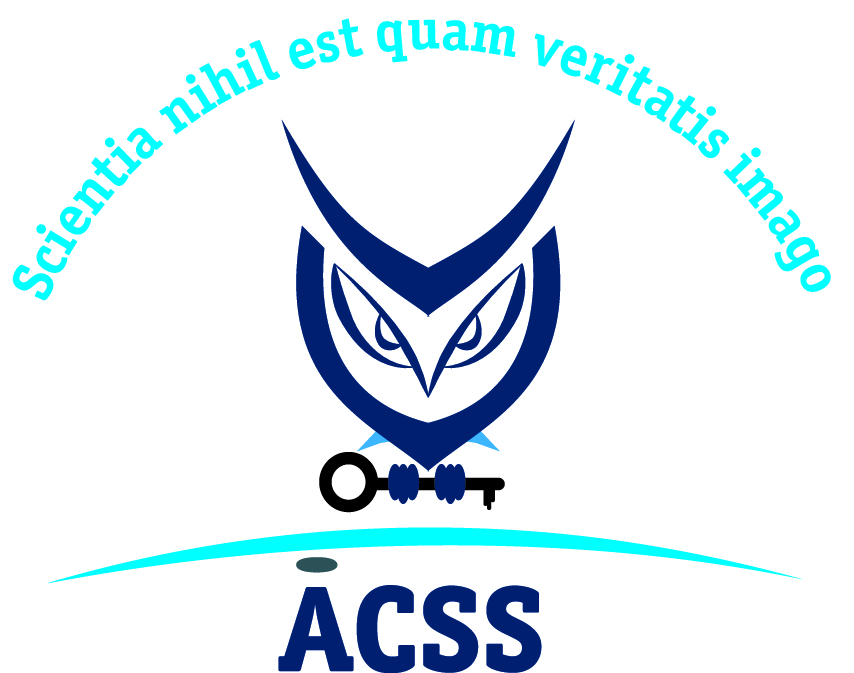ИнститутыИнститут математики, информационных и космических технологий Заочный финансово-экономический институт Институт естественных наук и биомедицины Институт комплексной безопасности Институт медико-биологических исследований Институт педагогики и психологии Институт социально-гуманитарных и политических наук Институт строительства и архитектуры Институт теоретической и прикладной химии Институт физической культуры, спорта и здоровья Институт филологии и межкультурной коммуникации Институт экономики и управления Институт энергетики и транспорта Гуманитарный институт филиала в Северодвинске Институт судостроения и морской арктической техники филиала в Северодвинске Research |
Expedition Duration: 20 days Expedition Organizers: Northern (Arctic) Federal University named after M.V. Lomonosov; Roshydromet Expedition Route: Arkhangelsk — the Zhelaniya Cape (Novaya Zemlya) — Hall Island (Franz Josef Land) — Heiss Island (Franz Josef Land) — Jackson Island (Franz Josef Land) — Rudolf Island (Franz Josef Land) — Hooker Island (Franz Josef Land) — Northbrook Island (Franz Josef Land) — Bell Island (Franz Josef Land) — Arkhangelsk. You can find information about the location of the research vessel “Professor Molchanov” on the geoportal Expedition participants: 58 people (students, post-graduate students, research fellows of both Russian and foreign scientific and academic institutions) 
Partners participating in the expedition: Russian Geographical Society, Russian Arctic National Park, Lomonosov Moscow State University, University of Geneva, University of Lausanne, Federal Polytechnic School of Lausanne. Aims of the expedition:
RESEARCH PROGRAM:
EDUCATIONAL PROGRAM: The Program focuses on the bachelor, master and PhD students. Contents of the program: 8 educational modules and 32 hours of the lecture course.
EDUCATIONAL MODULES:
|
|

 Expedition Dates: July 08-28, 2017
Expedition Dates: July 08-28, 2017